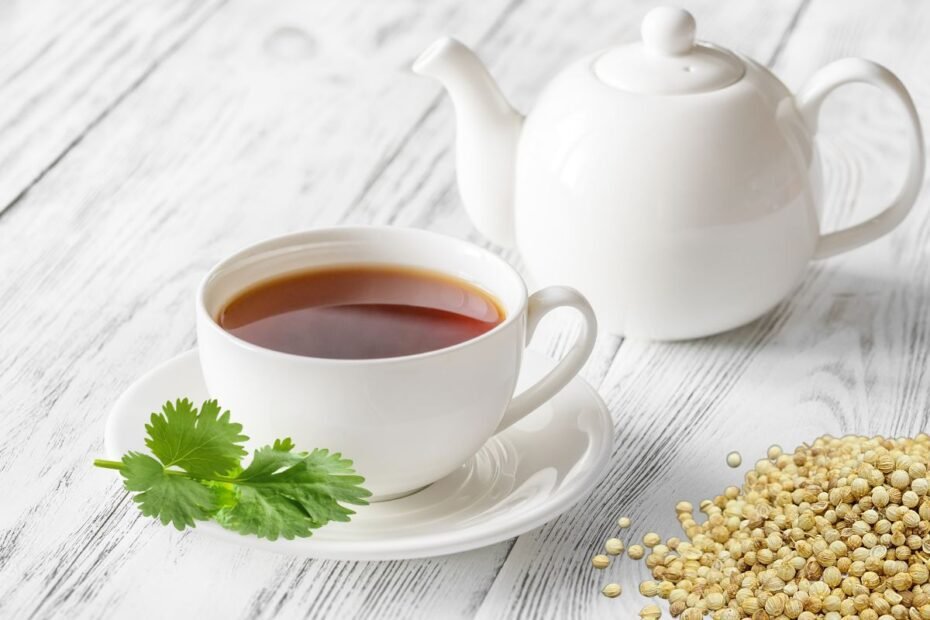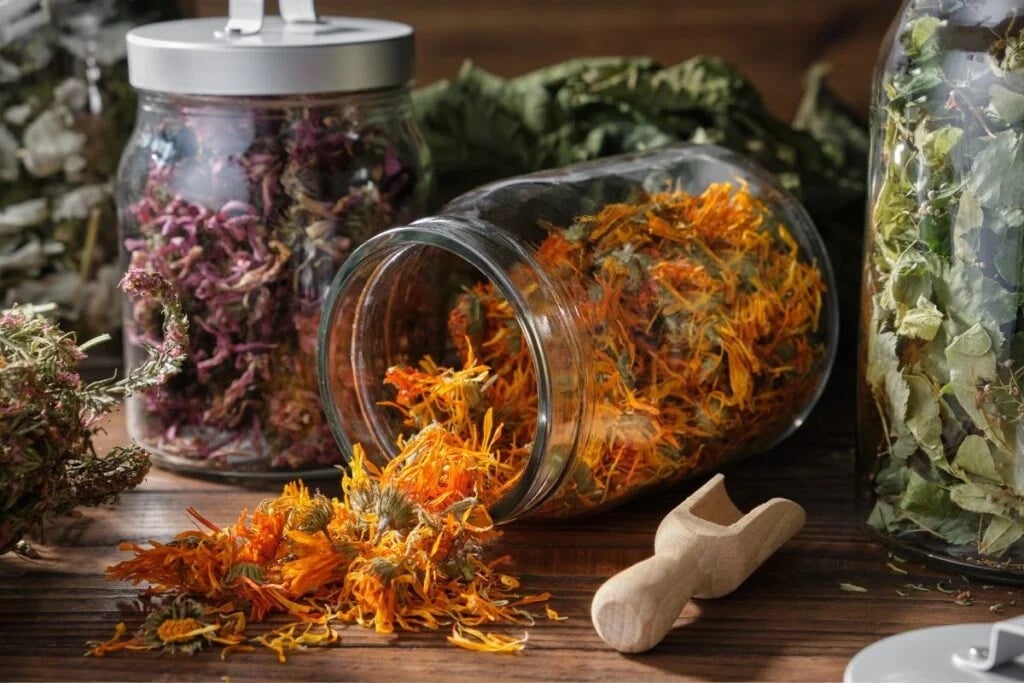When we talk about coriander, most of us think of the green leaves used in cooking, especially in meat dishes. However, many people would probably be surprised to find coriander tea. Although coriander is a common spice in our kitchen, cilantro tea is little known and rarely prepared. We will tell you what makes coriander tea extraordinary, how to prepare it properly, and what benefits it has for our health.
The History of Coriander
Coriander is a well-known herb. It has been known since 5000 BC and is even mentioned in the Bible. It is an ancestral herb used in cooking, medicine, and even ritual ceremonies for thousands of years.
The word ‘coriander’ (Coriandrum) is derived from the Greek word ‘koris,’ meaning flea, due to the crushed leaves of coriander giving off an odor similar to the insect. Its unique, intense aroma is regarded in two ways: some people like the spice very much, while others cannot stand the smell and, unfortunately, do not use it. For those who do not like the smell of fresh coriander leaves, use seeds or dried leaves. This method reduces the spicy smell and tends to smell quite pleasant to most people.

How to Recognize The Coriander?
Coriander belongs to the celery family (Apiaceae). It is an annual herb. The stem is steep and cylindrical. Leaves are green, continuous, trifid, or doubly pinnate. It blooms with white or pink flowers from June to late August. Fruits are globular, 2–7 mm in diameter, brownish or gray-yellow. Coriander becomes woody, so only young plants are used for food. If you grow coriander only for its leaves, pick off the flower and do not allow it to bloom. Otherwise, the plant concentrates on producing flowers and seeds, but smaller and less attractive leaves and woody stems. You can use all parts of coriander in cooking: leaves, stems, and seeds.
Health Benefits of Cilantro Tea
The health benefits of coriander tea are endless, from boosting immunity and lowering blood sugar levels to cleansing the skin and strengthening hair.
Cilantro is rich in vitamins A and C, dietary fiber, iron, manganese, calcium, vitamin K, phosphorus, as many as 11 essential oils, and many more beneficial substances, so it’s no wonder that coriander tea has healing and health-restoring qualities.

Coriander Tea Benefits
- Coriander seeds have a blood sugar-lowering effect. They activate enzymes that help to remove sugar from the blood more quickly, which can help to prevent type 2 diabetes.
- However, people with low sugar levels and those already taking medication to control their diabetes should consume coriander seeds with caution.
- Coriander tea improves heart health by helping to regulate high blood pressure and excessive cholesterol. Coriander is a diuretic, so it helps to remove excess water and sodium from the body more quickly, which lowers blood pressure.
- Cilantro tea improves and activates brain function. It may even help to reduce the progression of diseases such as Parkinson’s and Alzheimer’s. Tea’s antioxidant, cholesterol-lowering, and inflammation-reducing effects lead to less exposure of oxidative stress to brain neurons. It improves memory and helps manage anxiety.
- Coriander tea (especially seed tea) improves the digestive system. The oil in the seeds stimulates the digestive system, leading to better absorption of nutrients, better digestion of food, and reduced bloating, abdominal pain, and general discomfort caused by digestive disorders. Coriander tea also reduces the unpleasant sensations caused by increased stomach acidity, reducing acidity.
- This consequently leads to better urinary system protection and kidney functioning.
- Coriander is also a painkiller, so coriander tea can help relieve migraine or menstrual pain.
- Coriander can help maintain and even improve eyesight, as it is rich in vitamins A, E, C, and carotenoids, essential for eye health and ‘eagle’ vision. Studies have shown that cilantro tea can help reduce age-related macular degeneration and cure conjunctivitis.
- Coriander tea preserves healthy and good-looking skin because its antioxidants, vitamins E, A, and C, are essential for healthy and glowing skin. Cilantro tea detoxifies the organism and keeps the skin healthy for years.

Cilantro Tea: How to Prepare
You can prepare coriander tea using its leaves, stems, or seeds. The beneficial properties are essentially the same, but the taste characteristics differ.
So, for those who don’t like the smell of fresh coriander leaves, coriander tea made from seeds is a better choice.
Coriander Leaf Tea
Ingredients:
- 1 cup fresh coriander leaves
- 1 cup of water
Preparation: finely chop the coriander leaf and let it steep in boiling water for at least 10-15 minutes. Then, strain the tea and pour it into a cup. The coriander tea can be flavored with honey.
Coriander Seed Tea Benefits and Recipe
Coriander seed tea protects the urinary system and improves kidney function. As coriander is a diuretic, as mentioned above, it helps to eliminate toxins and microbes more quickly from the body. Coriander seed tea boosts immunity and helps you recover faster from colds. This is due to the antioxidant compounds and vitamins E and C in coriander, especially the seeds, which fight free radicals in the body, protect cells from cell damage, and reduce inflammation. Studies have shown that the substances in coriander seeds can reduce the risk of lung, prostate, and breast cancer.
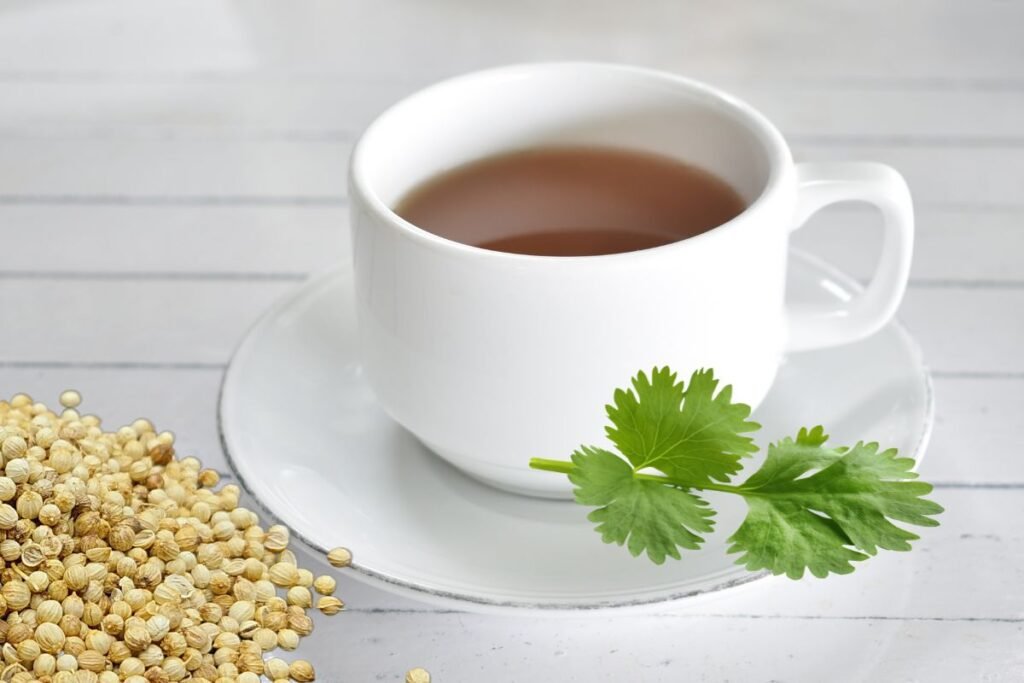
Ingredients:
- 0,5 tsp coriander seeds
- 1 cup of water
Preparation:
Add the coriander seeds to boiling water and boil for about 10 minutes. Turn off the stove, cover the pot, and let it stand for another 10-15 minutes. Strain the water into a cup and let it sit for a few minutes. The cilantro tea can be flavored with a slice of lemon or a teaspoon of honey.
Miraculous Ayurvedic Tea with Coriander
This tea’s incredible benefits have been used for thousands of years to support digestive health. It helps to absorb nutrients and stimulates the lymphatic system. This tea doesn’t require particular ingredients to prepare. Most of us have the spices used to make this tea in our kitchens.
Ingredients:
Preparation:
Add all the seeds to boiling water and cook for about 5-10 minutes. Turn off the stove, cover the pot, and let it stand for about 15 minutes. Drain the seeds before drinking.
Tip: You can pour the tea into a thermos and drink slowly throughout the day. This tea must be drunk hot, as it activates and improves the digestive system and lymph flow.
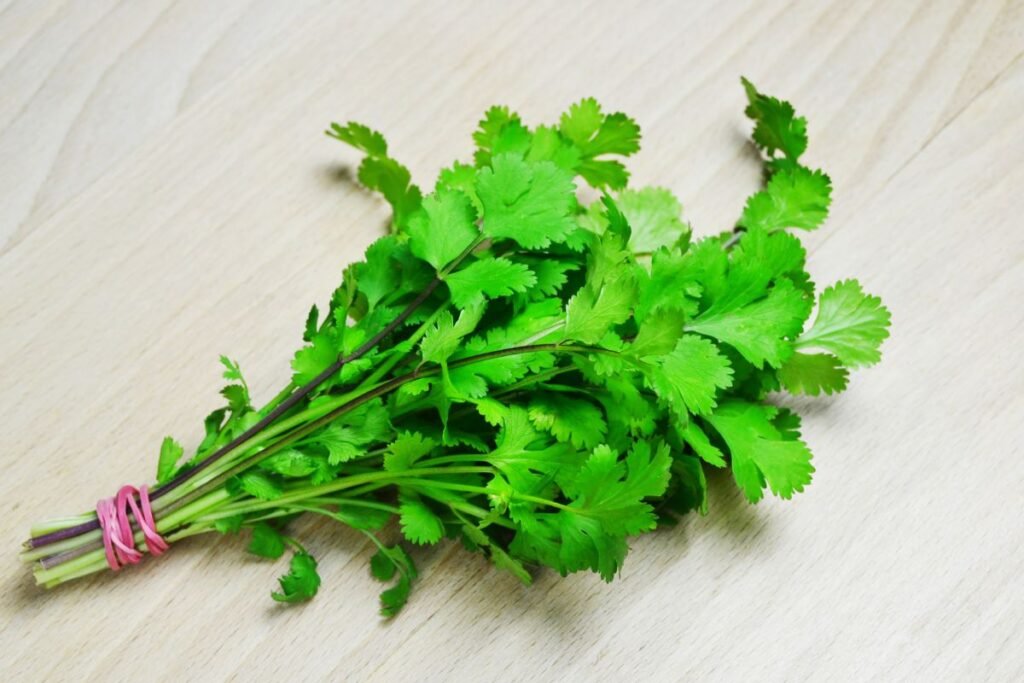
Ginger and Cilantro Tea
This tea is perfect for upset stomachs and colds. It may boost the immune system.
Ingredients:
- 1 cup coriander seeds
- 2 tablespoons of grated ginger root
- 3 cups water
- honey or sugar to flavor the tea
Preparation:
- Lightly toast the coriander seeds.
- Peel, wash, and coarsely grate or finely chop the ginger root.
- Cover with water, stir, and boil until the water has boiled off and about 2 cups remain.
- Strain the tea into cups. Season to taste with honey or sugar, and drink hot.
Tip: Coriander and ginger tea are used for colds because they ease expectoration, liquefy, and help mucus clear faster. The steam from this tea is also ideal for inhalation when you have a cold. Just be careful not to burn yourself!
You can try substituting garlic for ginger or use both.
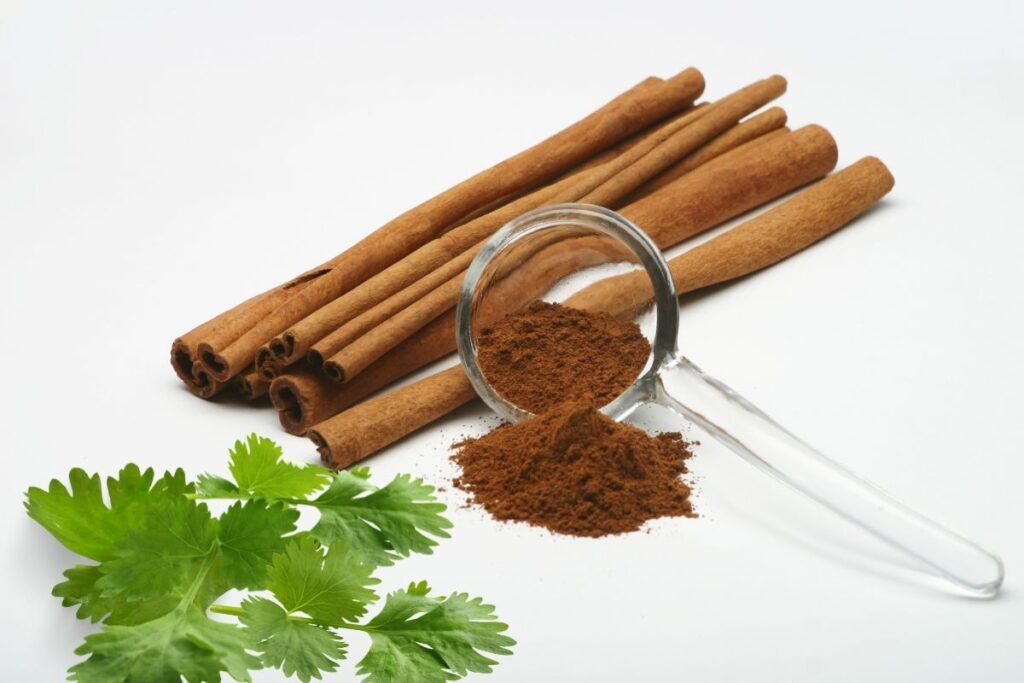
Cinnamon and Cilantro Tea
This is a brilliant choice for those who don’t like the smell of fresh coriander leaves very much: cinnamon gives a pleasant, cozy, warming aroma and flavor.
Ingredients:
- 4 sprouts of fresh coriander
- 1 cinnamon stick
- 2 cups of water
- Honey or maple syrup
Preparation:
Wash the cilantro sprigs, scrape the leaves, and gently pinch them. After that, place them in the pot where you will brew the tea. Add the cinnamon stick and cover with water. Cook until the water boils, then turn off the stove, cover the pot, and let the tea steep for about 15 minutes. Strain the tea and pour it into cups. You can add a teaspoon of honey, maple, or agave syrup.
Tip: You can make this tea with mint leaves, which give you a different taste, aroma, and additional health benefits.

What Are The Side Effects of Coriander Tea?
Despite its incredible health benefits, coriander and coriander tea can have adverse effects on some people’s bodies, so always be careful with any medicinal or herbal herb, especially if you are using it for the first time. For any therapeutic use of coriander tea, consult your doctor or pharmacist first.
- Particular caution should be exercised by pregnant, breastfeeding women and children, as there are insufficient studies on the effects of coriander in this category of persons.
- Coriander may cause allergic reactions such as skin rashes, hives, difficulty breathing, itching, dizziness, and swelling of the face or throat. Particular care should be taken by people allergic to anise, cumin, fennel, dill, and similar herbs.
- Coriander can even cause liver problems if taken in excessive quantities or for too long.
- People with low sugar levels and those taking medication for diabetes should also be cautious about using coriander. Coriander can lower blood sugar levels even further, which can lead to hypoglycemia.
- Some studies have shown that coriander consumption can increase sensitivity to the sun.
- If you drink too much coriander tea, it can cause gastrointestinal problems such as diarrhea or abdominal pain.
Sources:
- https://www.vle.lt/straipsnis/kalendra/
- https://www.allthatgrows.in/blogs/posts/health-benefits-of-coriander
- https://pharmeasy.in/blog/9-surprising-health-benefits-of-coriander-leaves-you-should-know/
- https://www.thechefsgardener.com/cinnamon-coriander-tea/
- https://foodcnr.com/ginger-corriander-tea-inguru-koththamalli/
- https://rakskitchen.net/kothamalli-thani-coriander-seeds-ginger-tea/
- https://www.balancenutrition.in/recipes/recipe-details/coriander-tea-easy-to-prepare
- https://kripalu.org/resources/ccf-ayurveda-s-miracle-tea
- https://www.earthtokathy.com/corriander/
- https://www.webmd.com/vitamins/ai/ingredientmono-117/coriander
- https://www.stylecraze.com/articles/unexpected-side-effects-of-coriander-seeds/
Associative photos from © Canva.
